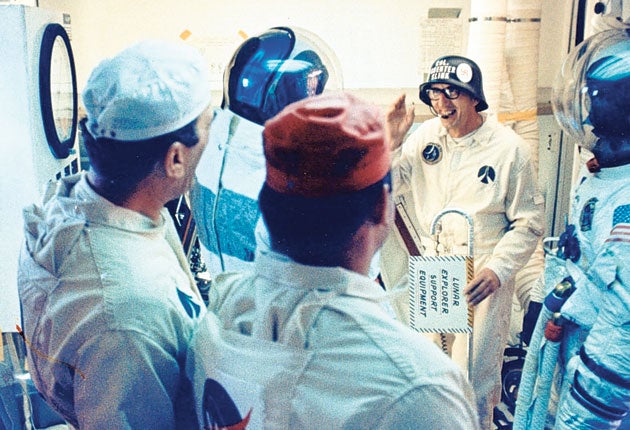Günter Wendt: Space engineer who fought for Germany in the Second World War then worked on Nasa’s Apollo programme

Günter Wendt was a legendary figure of the team that launched the Americans into orbit, and then to the Moon. But unlike many of the German engineers and scientists who played a decisive part in US space achievements, Günter Wendt was not recruited as one of Werner von Braun's Peenemünde colleagues.
Born in Berlin in 1924, after the Hitler Youth and compulsory labour service, Wendt completed an apprenticeship in aircraft manufacturing at the Henschel Flugzengwerke in Berlin in 1942, graduating 34th out of an intake of 500. Inevitably he was called up for service with the Luftwaffe. After basic training in France he was ordered to the Aviation Test Centre near Berlin to be trained on the new airborne radar systems being installed in German aircraft.
As a flight engineer/radar operator on a Junkers 88G night fighter he took part in the rapidly escalating air war over Germany. Shot down by a British Mosquito fighter bomber, he parachuted to safety. Not long afterwards he was brought down again, this time by German anti- aircraft fire. Once again luck was with him. As the Luftwaffe ran out of fuel, he transferred to the paratroopers taking part on the ill-fated Ardennes offensive in the winter of 1944-45. Finally, he was demobilised by the British in Hamburg in the summer of 1945.
After four years of odd-jobbing in devastated post-war Germany, Wendt re-established contact with his father, who had emigrated from Germany to the US in 1926. As an American citizen he was able to sponsor Günter, who started a new chapter in St Louis in 1949. After working as a motor mechanic he got back into aviation as maintenance mechanic and then as an instructor for Osark Air Lines, a new, small, company operating from St Louis to Chicago.
In 1952 Wendt gained US citizenship, which enabled him to work as a structural engineer with McDonnell Aircraft in St Louis. He moved on to the new manned Mercury space programme in 1958, transferring to Florida in 1959. In those early days Cape Canaveral's major launch facilities had yet to be built, and Wendt arrived as one of the first five sent to transform this coastal swamp. They slept in a cable room on folding cots, cockroaches and snakes their constant companions.
It was there that Wendt began his tour as capsule pad leader or "Pad Führer," as John Glenn later named him. Wendt controlled the "White Room", that area around the space capsule that led to the spacecraft hatch, and was responsible for all activity around and inside the spacecraft and its ground support equipment. Thus he was the last person to "tuck in" the astronauts and order the technician to close the hatch. He was at the launch pads for the entire Mercury and Gemini programmes (1961–1966).
In January 1967, Wendt, still with McDonnell, was supervising the test range in Titusville, Florida. Since Nasa changed contractors for the Apollo programme to North American Aviation (soon to become North American Rockwell), he was not involved with the Apollo 1 spacecraft, in which a cabin fire caused the deaths of Gus Grissom, Edward H White and Roger Chaffee.
Grissom's back-up and replacement on the Apollo 7 flight, Wally Schirra, insisted on having Wendt back in charge of the pad crew for his flight, and convinced the chief astronaut Deke Slayton to get North American to hire him. Schirra persuaded North American's vice-president and general manager for launch operations, Bastian Hello, to change Wendt's shift from midnight to daytime so he could be pad leader for Apollo. Wendt then worked on the manned phase of the Apollo programme (1968–1975) at the Kennedy Space Centre.
Wendt retired in 1989 but remained interested in space travel. This helped him gain a foothold in Hollywood as a consultant on several space movies. He also assisted in the recovery of the Mercury capsule Liberty Bell 7 from the depths of the ocean and co-authored his autobiography The Unbroken Chain (2001). Wendt was a recipient of Nasa's Letter of Appreciation award and in 2009 he received a Nasa Lifetime Achievement Award.
David Childs
Günter Wendt, space engineer: born Berlin 28 August 1929; died Merritt Island, Florida 3 May 2010.
Subscribe to Independent Premium to bookmark this article
Want to bookmark your favourite articles and stories to read or reference later? Start your Independent Premium subscription today.

Join our commenting forum
Join thought-provoking conversations, follow other Independent readers and see their replies